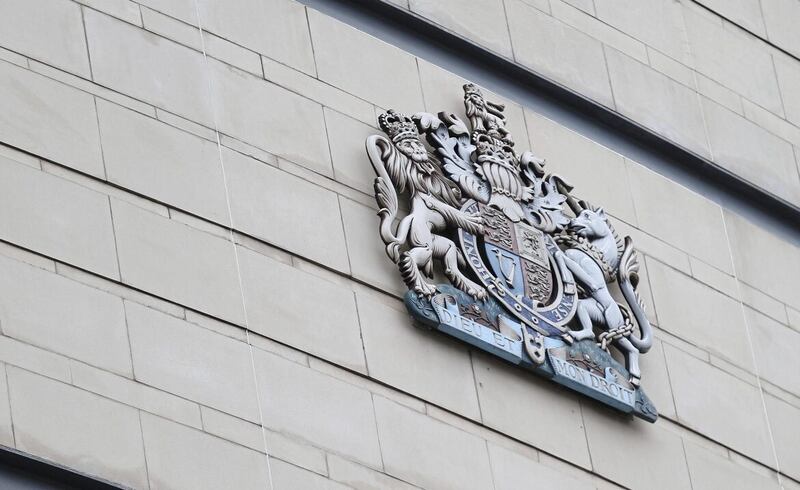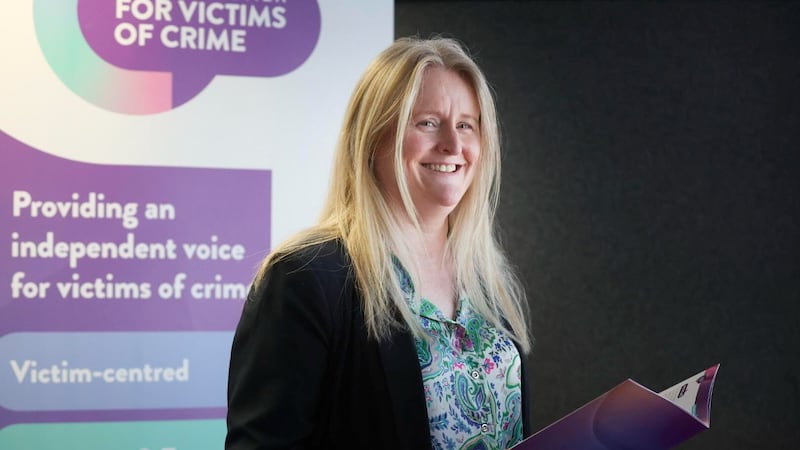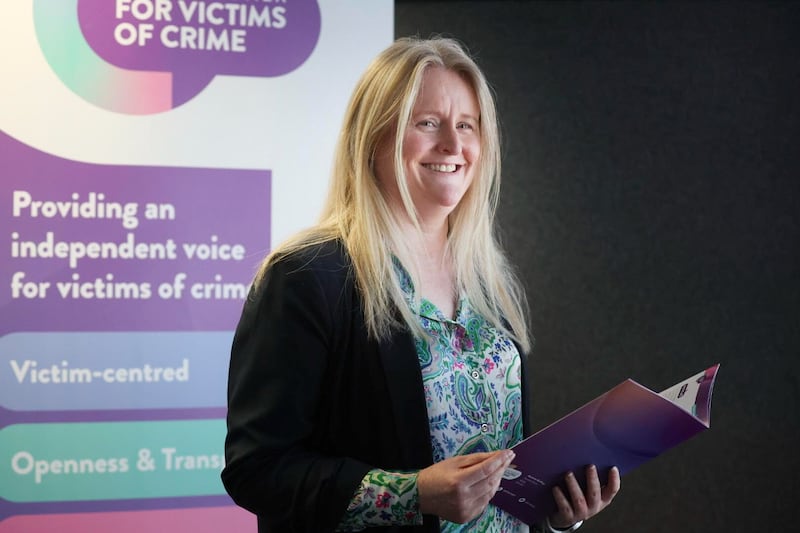Medical and other records of alleged victims of sexual crimes are being requested by defence teams when arguably they have little connection to the case, a recently appointed victims’ advocate said.
The documents include notes from counselling sessions, other medical records along with a range of information from support services, said Geraldine Hanna, the Commissioner Designate for the Victims of Crime.
In some instances, alleged victims are unaware of court orders relating to records and only made aware of the depth of information requested and handed over when facing questioning in court, Ms Hanna told the Irish News
In an interview, Ms Hanna also expressed fears the freeze on PSNI hiring will impact local police response teams, potentially allowing grassroots groups with paramilitary links to fill the vacuum.
The commissioner, still a designate as legislation is needed before she has full powers, is also concerned over delays, particularly in relation to complex sexual crime cases. She is also claiming there is sometimes a failure to adequately keep people updated as the cases are moving through the system.
On disclosure of information, Ms Hanna said: "You should only be disclosing something that is of probative value. There is a disclosure test. Information should be shared with the defence if the information either assists the defence case or undermines the prosecution. I have no objection to that, that is appropriate.
"The problem is what is happening at the moment with victims’ records is that we are getting too much information that is not of probative value."

The information requested is often wide-ranging and covering dates far out of the range of when the crime is alleged to have happened, it is claimed.
"Unfortunately what is also happening is that victims are not always being given the opportunity to dispute whether or not the information is relevant, They are not always aware that these court orders are being made," said Ms Hanna, the former chief executive of Victim Support.
Some of the information has "absolutely nothing to do" with the alleged crime. There have been cases where a victim is only aware the information was disclosed when questioned on the stand, she added.
While counselling reports are often requested, it is also information compiled by the support services. Too often, she claimed, it is a "fishing" expedition to undermine the alleged victim.
"There is a balancing exercise there because you cannot just go on some fishing expedition to find anything, there has to be a reasonable line of inquiry.
“That is where we need safeguards to be stronger, to protect victims, while always ensure Article 6 rights (to a fair trial) are protected. I just do not think our balance is right at the moment."

She fears if the balance is not right, then victims will be less inclined to report crimes or may also be reluctant to fully engage in counselling sessions for fear the information will be disclosed.
In a statement, the Bar of Northern Ireland said its members are committed to representing the best interests of all clients, both victims of crimes and those of the accused.
"The importance of disclosure as a vital part of every investigation and preparation of every case for prosecution and trial," the bar said in a statement.
"There are established rules and procedures to govern any requests for disclosure in these cases and we would expect these to be complied with in full.
"It is worth noting that defence counsel can also apply for a court order requiring a third party to produce material to the court.
"The role of the Commissioner Designate is to use insights based upon the lived experience of victims and supported by evidence to provide advice to government or to advocate for changes that are needed for a better victim centred criminal justice system.
"To that end, the Bar of NI can commit to working with the Commissioner Designate to identify and properly investigate any available evidence relating to the concerns she has expressed."
Ms Hanna is also raising concerns over the claimed failure to keep victims updated on the progress of a case. The 2015 Victims' Charter makes clear this should happen.

“That should be sacrosanct, it is in law. That is the biggest complaint I get from victims all the time, that they are not getting updates."
She cited the example of the alleged of a sexual assault waiting eight months with no communication before being told there would be no prosecution.
While there is some disquiet over sentences handed down to those convicted, this is a complex area with judges working within set guidelines, said Ms Hanna, adding victims are often unhappy when an accused pleads guilty on the cusp of a trial and then gets credit for doing so.
.
“They may be waiting until the day of the trial and there is a question for me as to whether or not they should be given any sort of time off. That feels very unfair to victims."


